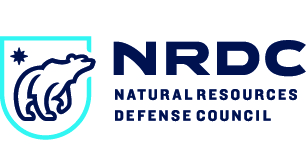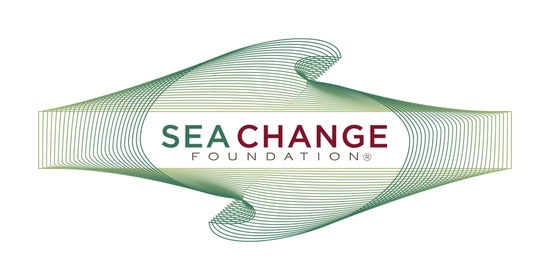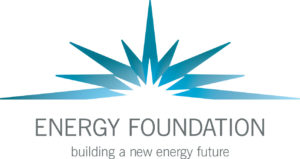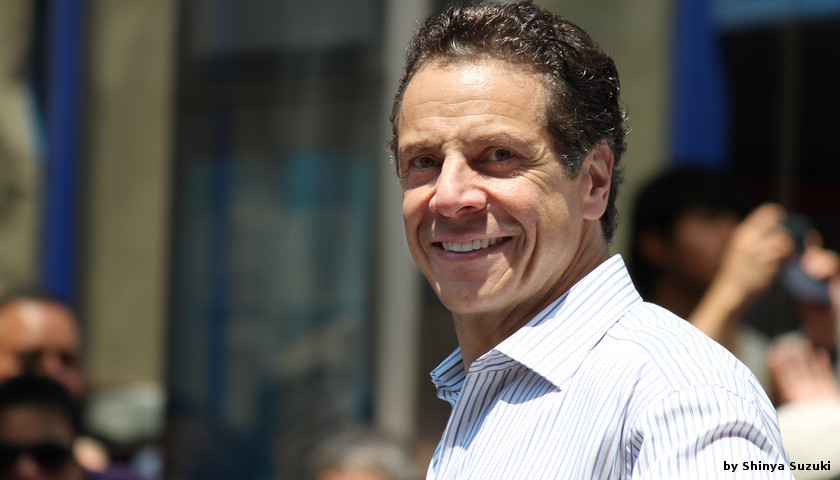by Kevin Mooney
New Yorkers who are missing out on the natural gas revolution could be victims of Russian spy operations that fund popular environmental groups, current and former U.S. government officials and experts on Russia worry.
Natural gas development of the celebrated Marcellus Shale deposits has spurred jobs and other economic growth in neighboring Pennsylvania. But not in New York, which nearly 10 years ago banned the process of hydraulic fracturing, also known as fracking, to produce natural gas.
Two environmental advocacy groups that successfully lobbied against fracking in New York each received more than $10 million in grants from a foundation in California that got financial support from a Bermuda company congressional investigators linked to the Russians, public documents show.
The environmental groups Natural Resources Defense Council and the Sierra Club Foundation millions of dollars in grants from the San Francisco-based Sea Change Foundation.
[ The liberal Left continue to push their radical agenda against American values. The good news is there is a solution. Find out more ]
“Follow the money trail, and this [New York] ban on fracking could be viewed as an example of successful Russian espionage,” Ken Stiles, a CIA veteran of 29 years who now teaches at Virginia Tech, told The Daily Signal.
To Stiles and other knowledgeable observers, this looks like an actual case of knowing or unknowing collusion with Russia.
Both Natural Resources Defense Council and Sierra Club Foundation also accepted tens of millions from the Energy Foundation, the top recipient of grants from Sea Change, according to foundation and tax records.
When New York Gov. Andrew Cuomo, a Democrat, renewed his state’s ban on fracking three years ago, the Natural Resources Defense Council issued a statement supporting the ban. So did the Sierra Club, the primary recipient of grants from its sister organization, the Sierra Club Foundation.
Environmental activists associated with the groups receiving Sea Change Foundation grants continued to pressure Cuomo and other public officials to maintain and expand New York’s fracking ban.
Most recently, the two environmental groups scored another victory when the Delaware River Basin Commission, an interstate regulatory agency that includes the governors of New York, New Jersey, Pennsylvania, and Delaware, proposed a ban on fracking within the Delaware River Basin cutting across all four states.
The Sierra Club and the Natural Resource Defense Council have pressed the regional commission to impose the ban, issuing statements (here and here) calling for restrictions that are tighter than what the commission proposed.
PennEast Pipeline Co. is set to begin construction on a 120-mile-long pipeline to transport natural gas from the Marcellus Shale across Eastern Pennsylvania into New Jersey. In a new public relations campaign, PennEast asks New Jersey residents if they would rather obtain their energy from Pennsylvania or Russia.
[ Related: PennEast Pipeline Backers Tout Lower Energy Prices in Fighting Well-Funded Green Groups ]
PennEast cites media reports describing how anti-pipeline policies in Massachusetts forced the state into a position where it had to rely on Russian imports of liquified natural gas during peak cold periods this past winter.
The Russian Money Trail
Government officials and environmental leaders have a responsibility to track the money, Stiles, the former CIA officer , told The Daily Signal in an interview.
“The Russians are very adept and skilled at making long-term investments,” Stiles said. “They sit back very patiently to see how their funding can pay off over a period of many years.”
Stiles added:
Whether these environmental groups realize it or not, they could be operating as what we [in the CIA] call ‘agents of influence.’ By working to block natural gas production, environmental activists are advancing policies that work to the advantage of Russia and to the disadvantage of America and America’s allies.

Karen Moreau, who is in charge of the New York office of the American Petroleum Institute, a trade association for gas and oil companies, argues that the resulting policy hurts state residents and businesses.
“New York remains at a disadvantage because other states are not just more pro-energy, they are more pro-business and therefore pipelines that could have been constructed in New York taking gas from the Marcellus Shale are instead moving south, not north,” Moreau told The Daily Signal.
“The manufacturing renaissance that is taking place in this country thanks to the president’s policies is not happening in states like New York,” she said.
A senior adviser to the State Department told a recent conference that Trump administration policies supporting energy dominance could help the U.S. eclipse the amount of natural gas Russia exports to the European Union.
The Daily Signal unsuccessfully sought comment from the Sierra Club Foundation and its affiliate the Sierra Club, as well as Natural Resources Defense Council and Sea Change Foundation, on the allegations of Russian financial support for environmentalists’ anti-fracking and anti-pipeline campaigns.
The Marcellus Shale is a geological formation of sedimentary rock with large deposits of natural gas that cuts across southwestern New York, northern and western Pennsylvania, western Ohio, most of West Virginia and small portions of Kentucky and Tennessee.
The U.S. Geological Survey determined that the Marcellus Shale contains “about 84 trillion cubic feet of undiscovered, technically recoverable natural gas and 3.4 billion barrels of undiscovered, technically recoverable natural gas liquids.”
Since the U.S. is now the top producer of natural gas in the world, and well positioned to export liquefied natural gas across the globe, Russia recognizes it gradually could lose influence in parts of the world where Moscow has been the dominant supplier of oil and gas, Stiles said in a phone interview.
“America’s natural gas revolution has huge geopolitical ramifications, so Russia’s motivation to try to block our natural gas development is easy to understand,” the CIA veteran said. “If you are worried about the Russian bear rearing its ugly head in the next several years, the way to stop that and put it back into its cage is to cut it off at the knees financially.”
“That’s what natural gas pipelines are all about and that’s what fracking is all about. We are providing affordable energy to average Americans at home and our allies overseas.”

U.S. Gains in Market
In the fracking technique applied to shale formations, engineers inject water mixed with sand and chemicals into a well at high pressure, producing a fluid that fractures the rock and releases trapped oil or natural gas.
Environmentalists continue to challenge fracking, arguing among other things that it contaminates well water.
The natural gas import-export equation has changed radically in the past few years, with trends pointing to the U.S. becoming a net exporter.
Richard Westerdale, the senior adviser with the State Department, made this point in November during the Heartland Institute’s America First Energy Conference in Houston, Texas.
“By 2020, the U.S. will be approaching nearly 100 billion cubic meters in [liquefied natural gas] exports,” Westerdale said in a presentation. “It’s simply amazing to me to think that back in 2010, we were building [liquefied natural gas] import terminals.”
As natural gas markets become increasingly competitive, the “world wins,” he added, since “well-functioning markets reinforce global energy security, foster economic growth and commercial interests abroad, and, depending upon how host countries choose to use [natural gas resources], it can in fact enhance environmental stewardship.”
In three of the first five months of 2017, U.S. natural gas exports were greater than imports, according to the U.S. Energy Information Administration. The most recent available data shows that U.S. exports of liquefied natural gas increased for the duration of 2017 as new facilities went operational.

What Consumers Know
Stiles, who teaches espionage and national security issues in Virginia Tech’s geography department, defines espionage, or spying, as “an operation that is planned and executed as to conceal the identity of, or permit plausible denial by, the sponsor.”
One way for Moscow to conceal its sponsorship of anti-fracking campaigns in New York or elsewhere in the U.S. is to move its funding indirectly and anonymously through various entities, the former CIA analyst told The Daily Signal.
“I think the groups and individuals on both sides of the debate over fracking and pipelines have a tendency to just look in their own back yards, without looking at the larger geopolitical picture,” Stiles said. “If it was more widely known that anti-fracking, anti-pipeline operations may be benefitting from a foreign source of funding, this would certainly impact the debate.”
The agents of influence described by Stiles range from “controlled agents” and “trusted contacts” who know they’re working for a foreign government to “manipulated sources” who have no idea that they’re doing the bidding of a foreign power.
The former CIA analyst said he is inclined to characterize environmental activists who received Russian funding through indirect channels, such as Sea Change or the Energy Foundation, as manipulated sources.
Stiles calls on the leadership of environmental groups such as the Sierra Club and Natural Resources Defense Council, which accepted large amounts through such channels, to start asking hard questions.
“It’s either a lack of due diligence or incompetence, or they may actually know something about a particular donor, but they don’t want to ask that question,” Stiles said. “I tend to think the issue is more that they are just not looking the gift horse in the mouth, and they are just taking the money.”

Paperless Money Trail
Sea Change Foundation, a family charity, is identified in congressional reportsand correspondence as a major incubator of funding from foreign sources, including Russia. That money ends up in the coffers of U.S. environmental groups opposed to natural gas development and drilling techniques such as fracking that make that development possible.
Nathaniel Simons and his wife, Laura Baxter-Simons, established Sea Change Foundation in 2006. Simons is the son of James Simons, founder of the New York-based Renaissance Technologies hedge fund firm.
Sea Change, according to its website, works to “address the serious threats posed by global climate change,” focusing on “climate change mitigation and clean energy policy in the United States and internationally.”
In July 2014, the Senate Environment and Public Works Committee released a report describing how a Bermuda-based company, Klein Ltd., “was set up for the sole purpose of funneling anonymous donations to Sea Change.”
Bermuda law permits Klein Ltd. to conceal foreign sources of funding, the report explains.
“It appears that Klein exists on paper only, as it does not have an internet presence, and was set up for the sole purpose of funneling anonymous donations to Sea Change,” the report says.
Subsequent investigations building on the findings of the Senate committee—including that of the Washington-based Environmental Policy Alliance—established a connection between Wakefield Quin, the law firm that set up Klein, and top Kremlin officials including Russian President Vladimir Putin.
Lawyers and others at Wakefield Quin have been associated with Russian energy companies and worked with Leonid Reiman, a former Russian minister of telecommunications and longtime Putin ally, these investigations found.
Environmental Policy Alliance, which opposes the agenda liberal green groups, is affiliated with Washington lobbyist Rick Berman and his Berman & Co. public affairs firm.
Sea Change has not responded directly to The Daily Signal in the past, and did not respond for this report.
In an email to Salon, however, the foundation in July 2017 acknowledged receiving financial support from Klein, saying it accepted the company’s grant money as “general support” with no proviso that it be used for specific programs.
Response From Klein Ltd.
In an email to The Daily Signal, Roderick M. Forrest, a Wakefield Quin lawyer representing Klein Ltd., described allegations against his Bermuda-based client as “completely false and irresponsible.” Klein, he said, “has no Russian connection whatsoever.”
Forrest made similar assertions in an email to The Washington Times in July 2017.
The Daily Signal had sought the law firm’s comment on allegations of Russian funding of U.S. environmental groups and Klein’s alleged role in easing movement of Russian funds to the Sea Change Foundation.
“Our firm has represented Klein since its inception,” Forrest said in the email, “and we can state categorically that at no point did this philanthropic organization receive or expend funds from Russian sources or Russian-connected sources and Klein has no Russian connection whatsoever.”
The lawyer for Klein added:
Attorneys, law firms, financial institutions and all other companies based in Bermuda operate under a regulatory and anti-money laundering regime which applies standards which are amongst the highest in the world. Illicit movement of funds falls well below such standards and any informed party would understand that, not only is there no substance or truth to such allegations in this case, the allegations appear to be intended to damage the reputation of the Bermuda-based individuals and businesses named.
Bermuda and the U.S. have in place an information exchange framework under which the U.S. government, its regulators and law enforcement agencies have access to all information concerning financial transactions in Bermuda and by Bermuda entities. Through this framework, information is available to such proper authorities, enabling them to be satisfied as to the probity of any alleged payments.
Julie Hill, a professor at University of Alabama School of Law with expertise in regulation of financial institutions, told The Daily Signal that it is not “as easy as it was at one time to engage in money laundering” in places such as Bermuda and the Cayman Islands.
That’s because monetary authorities now collect more information from companies than they did previously, Hill said.
“This information is not made public, but it can be given to foreign governments,” Hill said in an interview, adding:
The advantage in Bermuda and the Cayman Islands now would be more in terms of tax neutrality rather than anonymity. But it’s certainly true that various entities have in the past engaged in money laundering schemes in these locations, and the Russians would be part of this history. Today there are more barriers than in the past. That doesn’t mean it can’t be done, it just means it’s harder.
‘Ripe for Investigation’
Rep. Lamar Smith, R-Texas, chairman of the House Committee on Science, Space and Technology, sent a letter in June to Treasury Secretary Steven Mnuchin saying allegations of Russian financial support for U.S. environmental groups “are ripe for an investigation” by the Treasury Department.
In the letter, previously reported by The Daily Signal, Smith noted that Klein Ltd. and Wakefield Quin share the same Bermuda address “with more than 20 other companies” apparently run through the law firm.
A review of IRS 990 Forms shows that Klein contributed $23 million to Sea Change in 2010 and 2011, almost half of what the California foundation received in that time. The 990 forms indicate Sea Change then made grants concentrated on environmental advocacy groups.
From 2010 through 2015, the Sierra Club Foundation received more than $18 million from Sea Change and Natural Resources Defense Council received more than $15 million.
Both groups are on record opposing natural gas development in New York, and both are among the top 10 recipients of Sea Change grants, according to an analysis of foundation records.
The Energy Foundation, at $64 million, was the top recipient of Sea Change grants from 2010 through 2015, the most recent year for which 990s are available.
The 2014 Senate report describes the Energy Foundation as a “pass through” public charity that donates to environmental activist groups such as the Sierra Club Foundation and Natural Resources Defense Council.
The idea behind a “pass through” organization, according to the Senate report, is “to create the appearance of a more diversified base of support” and to “shield” donors from accountability.
Between 1998 and 2015, the Energy Foundation paid 30,178 grants to 12,058 recipients totaling more than $1.2 billion, records show. Grantees included environmental groups active in opposing natural gas development of the Marcellus Shale.
The top recipient was Natural Resources Defense Council, with more than $35 million. The Sierra Club Foundation received more than $16 million. (The council has $236.5 million in net assets, while the foundation has $113.2 millionin net assets.)
Recalling Cold War History
Paul Kengor, a Grove City College political science professor who has researched the history of Moscow’s manipulation of U.S. political figures, told The Daily Signal that he sees an “old Cold War powder keg that went dry suddenly being reignited.”
“What makes the current situation more nefarious today is the possibility—if this is indeed accurate—of Russian manipulation of domestic groups inside the United States and the willful cooperation of those domestic environmentalists,” Kengor, a biographer of Ronald Reagan, said in an email, adding:
In the 1980s, Ronald Reagan had one heck of a time trying to enlist the support of our Western allies in blocking the Siberian gas pipeline in Russia. Even [British Prime Minister] Margaret Thatcher balked; in fact, that’s an understatement: Thatcher was vehemently opposed because she wanted Britain to have the cheap Russian gas and wanted some British firms to have some of the construction contracts. The same was true for the West Germans and the French.
Ronald Reagan boldly proceeded almost alone in this effort in the 1980s. But here today … we have the extremely troubling possibility of our own U.S. citizens being targeted by the Russians for manipulation in undercutting our own domestic energy industry, our workers, and our citizens.
What stands out in terms of Cold War history and its relevance to contemporary questions of espionage is the role of Putin, warns Bonner Cohen, a senior fellow with the National Center for Public Policy Research, a Washington-based think tank that supports free market solutions to policy challenges.
“Putin, let’s not forget, is an old hand at using Western pressure groups to serve the Kremlin’s purposes,” Cohen said in an email.
“When, in the 1980s, the old Soviet Union was manipulating self-styled ‘peace groups’ in Western Europe and the U.S. in an effort to divide NATO and isolate the U.S., Putin was a mid-level KGB agent in East Germany.”
Cohen added:
Though that effort ultimately failed, Putin learned his lesson well. Then it was U.S. missiles to defend Western Europe that had to be demonized; today, it is U.S. oil and natural gas that are portrayed as a threat. In both cases, money changed hands, and scare tactics were the order of the day.
New Yorkers and High Energy Costs
New York residents continue to pay the price for Cuomo’s ban on drilling techniques that make it possible to access natural gas from the Marcellus Shale, laments Moreau, executive director of the American Petroleum Institute’s New York office.
“People who could have had inexpensive natural gas instead have had to pay very high electricity prices due to the cold snap this winter,” Moreau told The Daily Signal, “and many power generators were actually forced to burn oil instead of natural gas due to the constraints on natural gas.”
The 625 members of API, a national trade association, include major energy companies in the oil and gas industry.
Although New York is the fourth-largest consumer of natural gas in the nation, that natural gas primarily is imported from other states, Moreau said.
“If not for the pro-energy development policies of other states, New Yorkers would be bitterly freezing this winter,” she said.
The Daily Signal sought comment from Cuomo’s office to ask if the New York governor had concerns about allegations of Russian support for environmental groups active in his state. His office has not responded.
Cohen, of the National Center for Public Policy Research, said he sees a connection between Putin’s government in Moscow and influential U.S. environmental groups that is difficult to deny.
“The Sierra Club, Natural Resources Defense Council, and other advocacy groups may have their own ‘green’ reasons for opposing America’s realizing the energy potential of its abundant fossil fuels,” Cohen said in an email to The Daily Signal. “At the same time, these groups know full well that they receive funding from the Sea Change Foundation and the Energy Foundation, both of which, according to a congressional report, are funded by Russian interests via a Bermuda-based shell company.”
Some green groups and Russia under Putin “have a common interest in demonizing fracking and related technologies that have tilted global energy markets in America’s favor,” Cohen said.
“Just as the shale revolution has been an economic godsend to millions of Americans, providing them with affordable electricity and transportation fuel, it has been a nightmare for Russia and environmental activists.”
– – –
Kevin Mooney is an investigative reporter for The Daily Signal. Send an email to Kevin.
Ken McIntyre contributed to this report.





